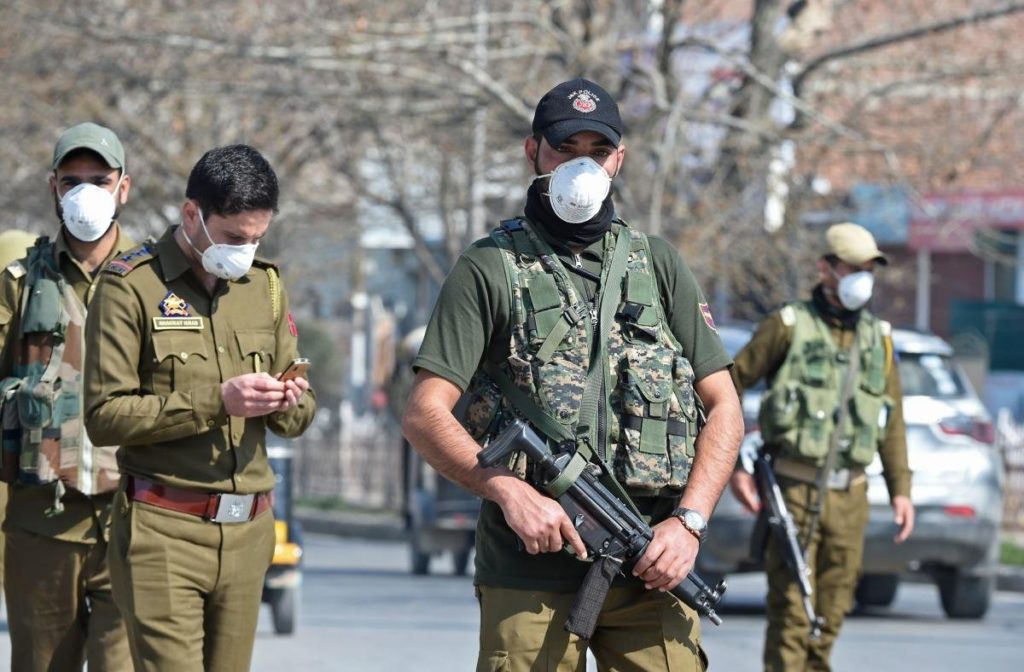The already tense situation in South-Asia further aggravated when India unilaterally revoked the autonomous status of the parts of Kashmir under its control and shut down its connections with the outside world on 5 August 2019. After the revocation of the special status of Jammu, the Valley of Kashmir and Ladakh, these areas are now directly ruled by New Delhi under a heavy military presence.
The European Parliament has repeatedly called for a more active EU role to solve the conflict. In two separate letters recently, a number of MEPs raised both the situation in Kashmir and the human rights situation in India.
The most recent letter dated 1 June was addressed to European Commission President Ursula von der Leyen and High Representative Josep Borrell. A group of MEPs, including Parliament Vice-President Fabio Castaldo, wrote that “there are cases where it feels like we (EU) are not doing everything we can: this is the case of Kashmir, probably the world's longest running conflict.”
“We should look at this region with great concern and avoid at all cost an escalation of the conflict by strengthening our dialogue with India, Pakistan and the representatives of Kashmir in order to recover the dimension of dialogue, negotiation and diplomacy in the resolution of the conflict.”
The MEPs called on the EU leadership to express concerns with the Indian government on these issues and to call on India to fulfil its international legal obligations, including investigations of human rights abuses in Kashmir.
Asked by The Brussels Times about the response to the letter, Virginie Battu-Henriksson, a spokesperson for the European External Action Service (EEAS), confirmed (12 June) that Borrell had received the letter and that a reply to it is being prepared. “We take note of the opinions and concerns expressed by these MEPs and have full respect and consideration for their right of expression,” she said.
“The EU is closely following the situation in the region. Through public statements and direct active engagement with both India and Pakistan, the EU has called on both sides to engage in bilateral dialogue to find a lasting solution to their longstanding conflict, respectful of the interests of the Kashmiri population on both sides of the Line of Control.”
She added that the EU considers that any allegation of human rights abuse should be investigated thoroughly, promptly and transparently, in line with international human rights obligations.
In one of his first visits abroad, the EU foreign policy chief visited New Delhi in January where he attended an international conference (Raisina Dialogue) and delivered a speech on EU’s contribution to global peace and security.
India has described its actions in Kashmir as temporary to attract investments to Kashmir and develop its economy and claimed that it is progressively easing up its measures. However, the curfew imposed by India last year is still intact and has caused a humanitarian crisis, with shortages of food and medicines, which have been aggravated by the lockdown restrictions during the coronavirus crisis.
The prolonged lockdown, including the nationwide lockdown that India imposed across the country to fight the coronavirus, has worsened the problem and led to a severe psychological and humanitarian crisis in Kashmir. Andy Vermant, a Belgian human rights activist and journalist, called in an op-ed in The Brussels Times for an EU probe into violations of human rights in Indian ruled Kashmir.
In another op-ed in the form of cartoons in The New York Times of 12 June, Malik Sajad, a writer and visual artist, described the situation in Kashmir as “the longest lockdown” where people’s fear of “relentless violence and authoritarianism overshadow their fear of the virus.”
MEP Maria Arena, chair of the Parliaments Sub-Committee on Human Rights (a body that actively monitors human rights across the globe and publicly advocates for fundamental rights) has written on 28 May to the Indian Minister of Home Affairs and raised concerns over the arrests and intimidation of defenders of human rights in India following the Citizenship Amendment Act from December 2019 on providing citizenship to non-Muslim migrants.
Among others, Anand Teltumbde, 70, a well-known engineer, writer and activist for the civil rights of the lower caste Dalits, was arrested in April on charges of conspiring against the government.
“It is particularly alarming to note that human rights defenders cannot conduct advocacy activities, notably in favour of India’s poorest and most marginalized communities, without becoming subject to intimidation and harassment, but equally worrying is the fact that terrorism charges, including under the Unlawful Activities Prevention Act (UAPA), are used to silence them,” the letter states.
Arena stated that against this background, there were also increased fears that the legislation might confer discretionary powers upon state agencies. The vague definition of ‘unlawful activities’ and ‘membership of terrorist organisations’ could allow for wide discretion by the government in applying the law. She expressed concerns that such a process would substantially weaken judicial oversight and the protection of civil liberties in the country.
She also referred to repeated calls by the United Nations for the immediate release of prisoners of conscience in the wake of the unprecedented situation of the COVID-19 pandemic, saying this was echoed by the Subcommittee on Human Rights during its meeting of 11 May 2020.
In her capacity as Chair of the European Parliament’s Subcommittee on Human Rights, Arena has furthermore called on the government of India to stop impeding and criminalizing the work of human rights defenders by means of overly broad national security legislation and to respect their freedoms of association and expression in accordance with international covenants on Human Rights. The Article 19 of Universal Declaration of Human Rights grants everyone right to freedom of expression and opinion, without interference, as does Article 10 of the European Convention on Human Rights.
The Brussels Times

